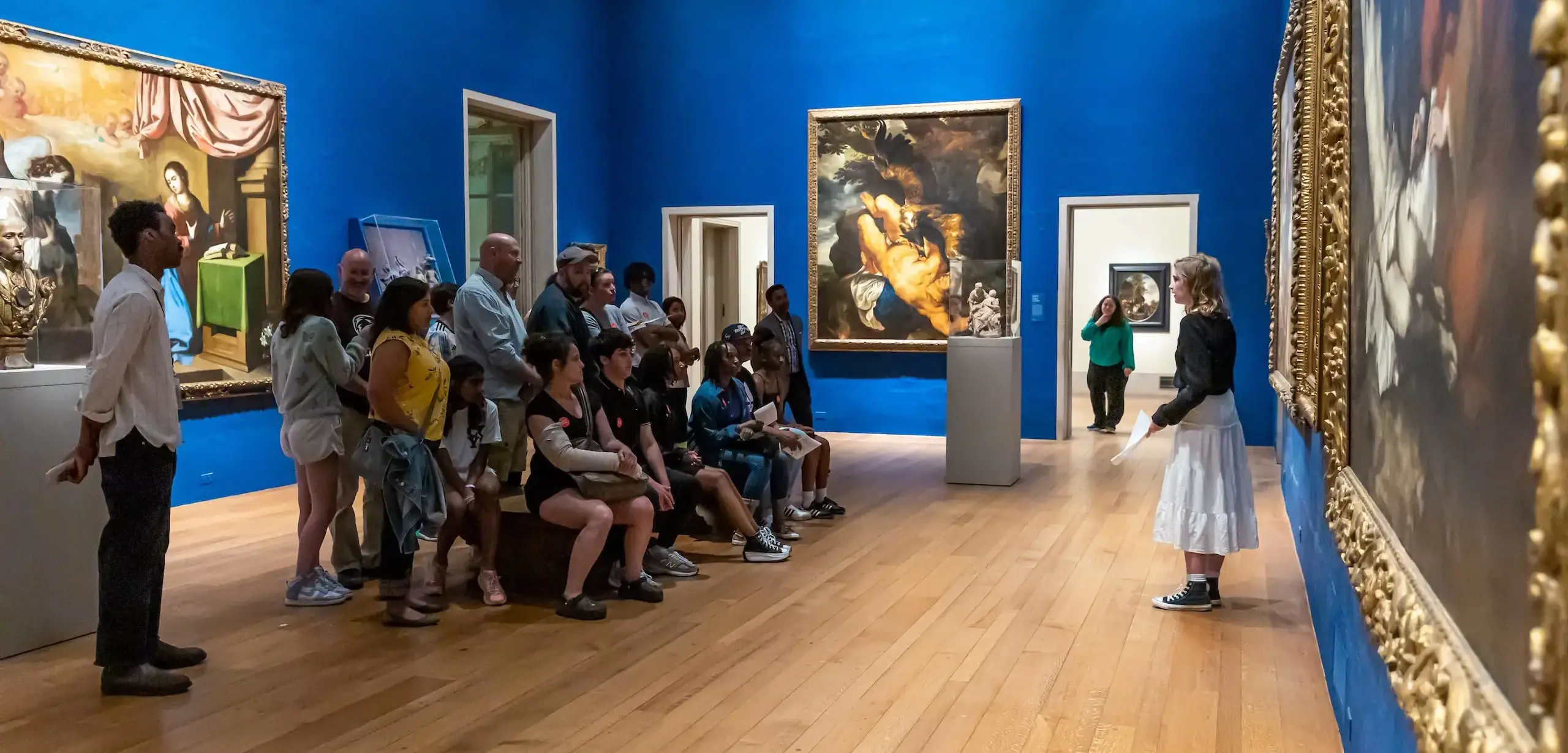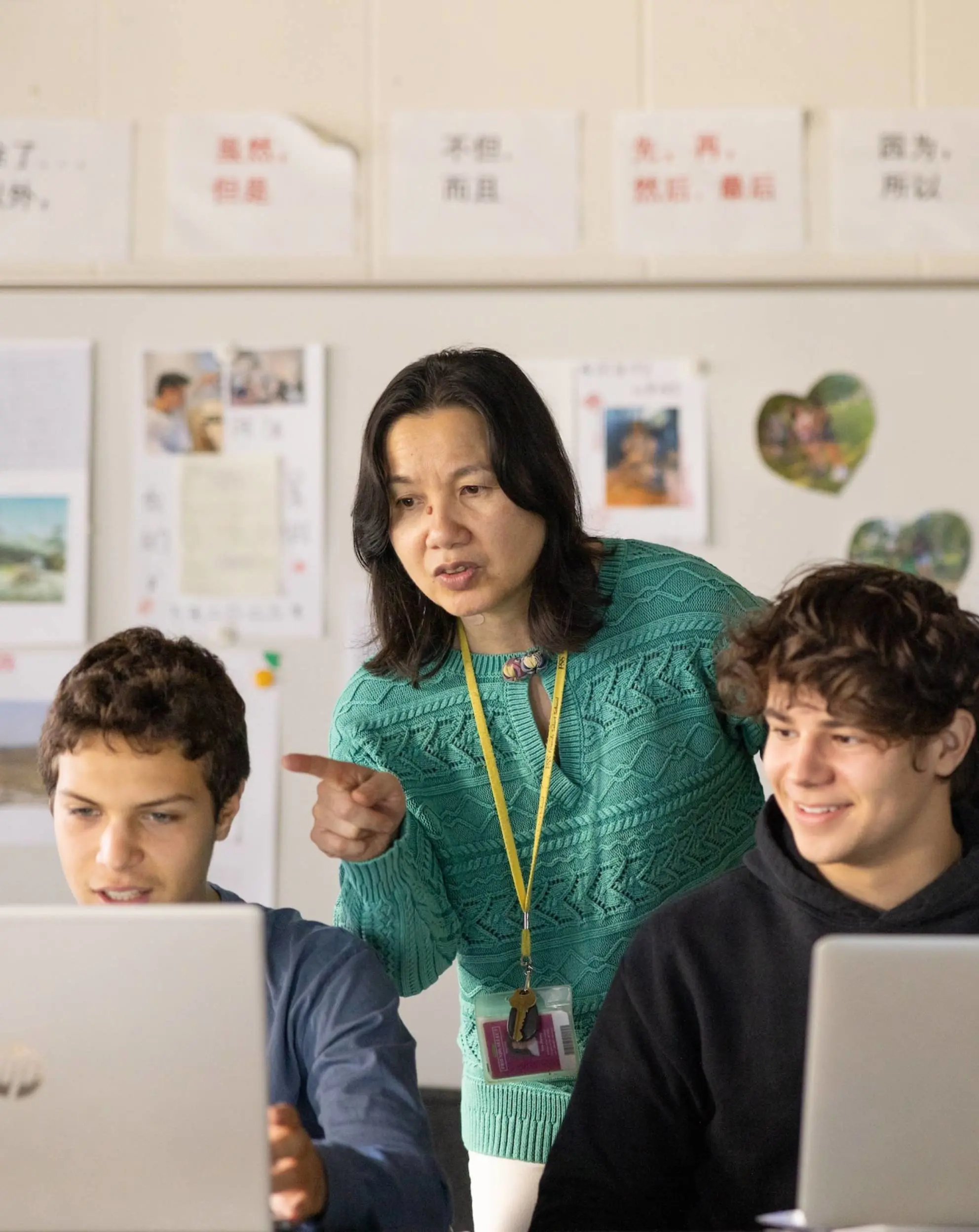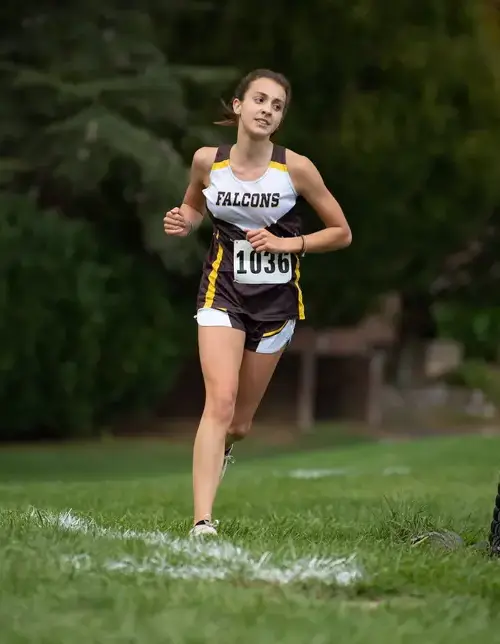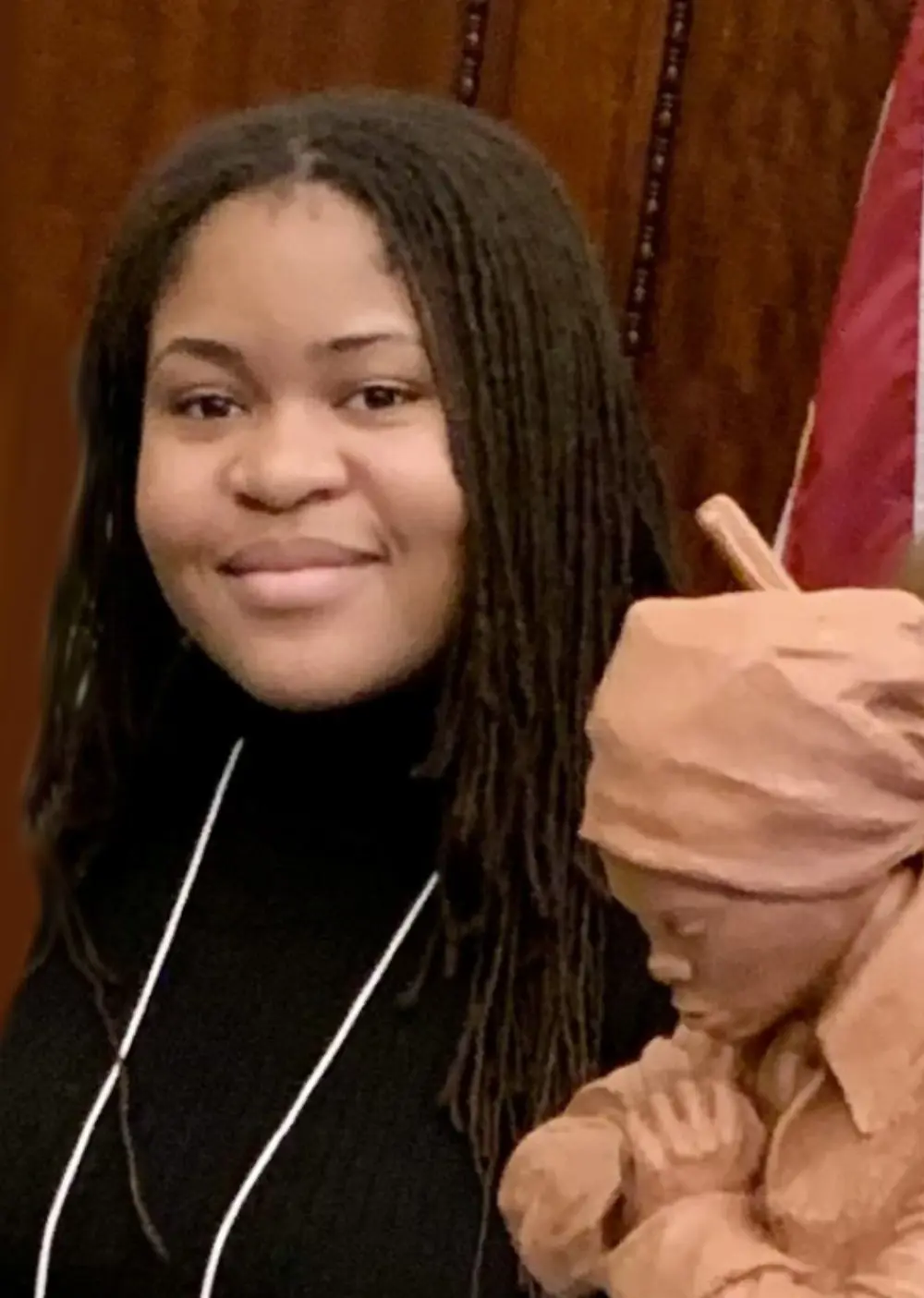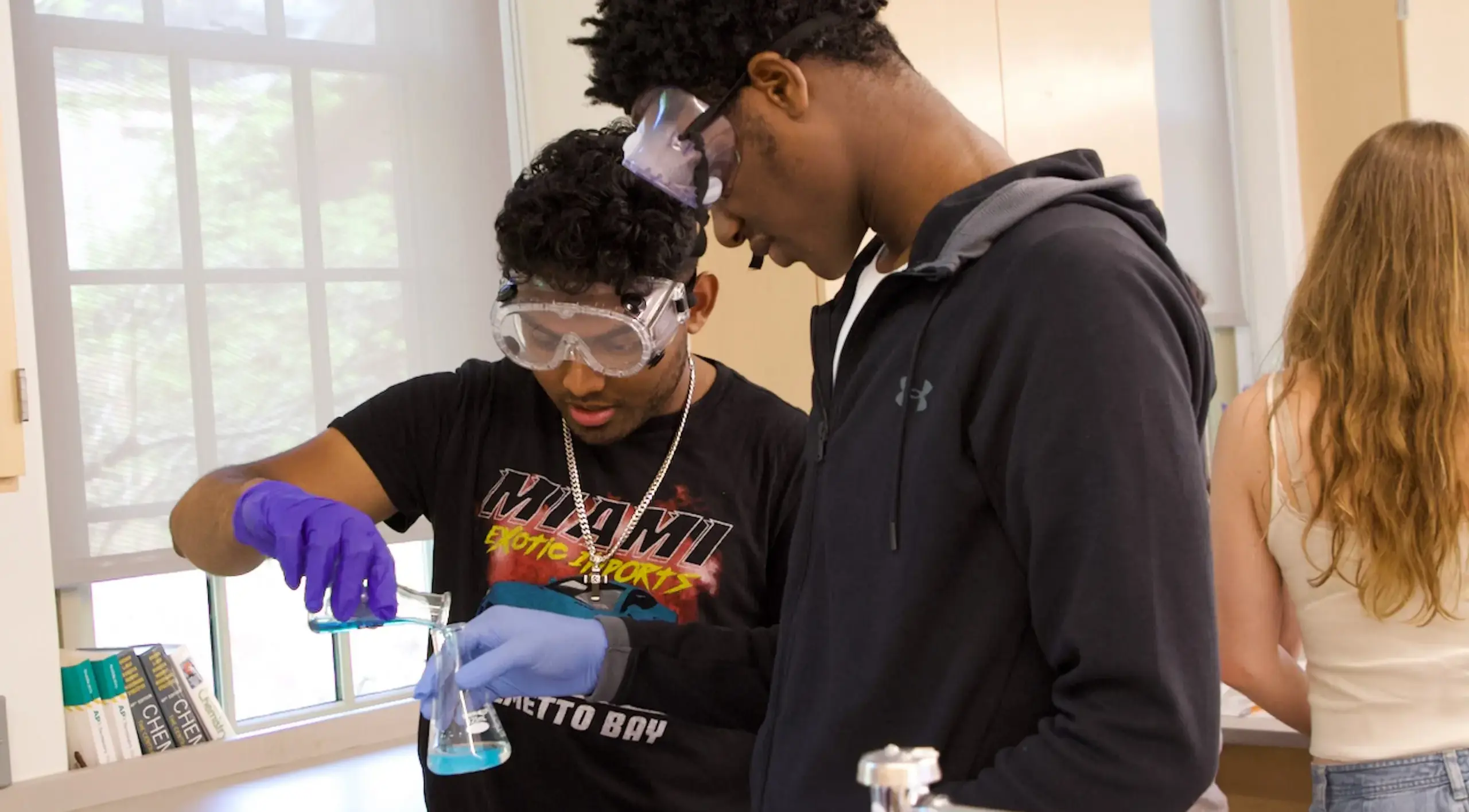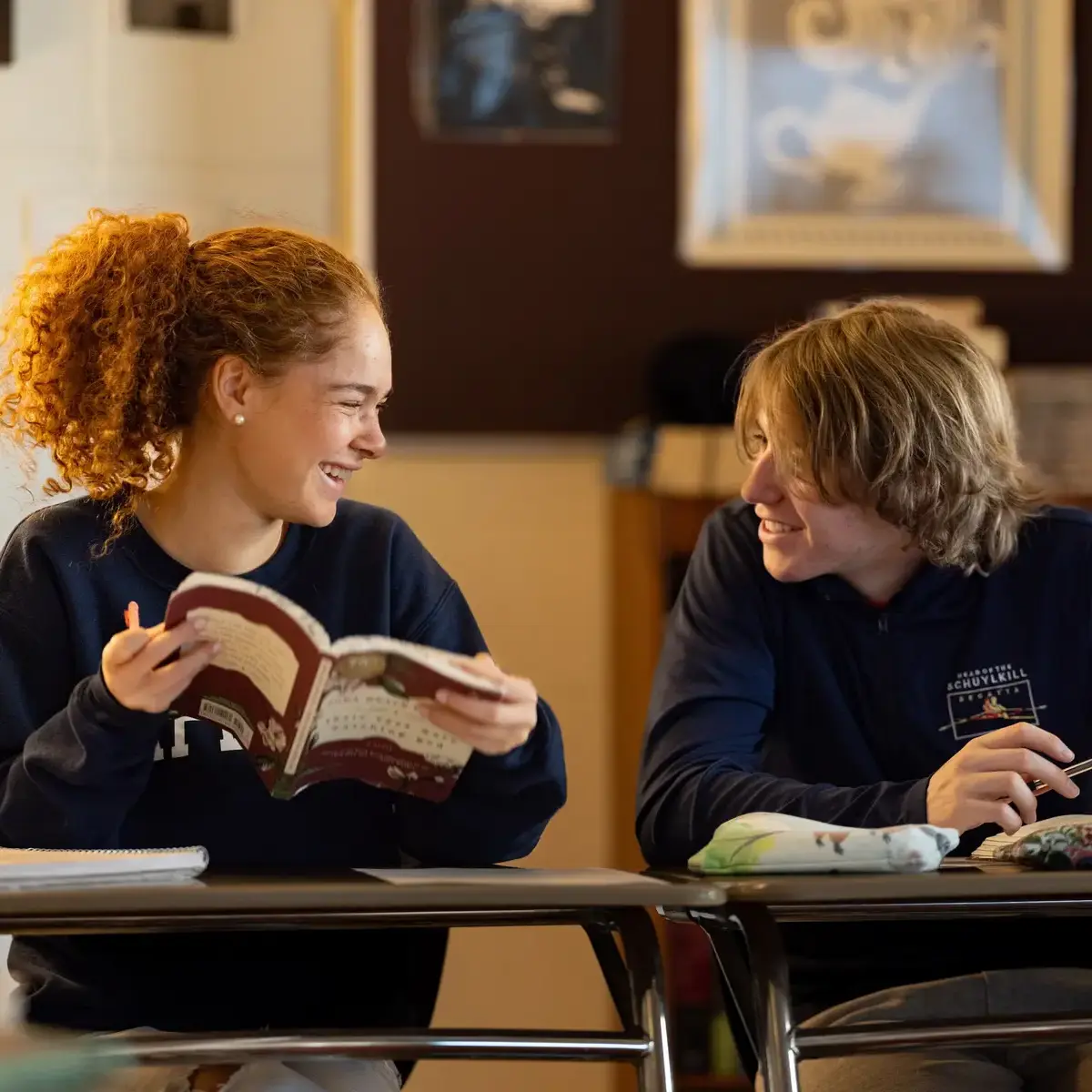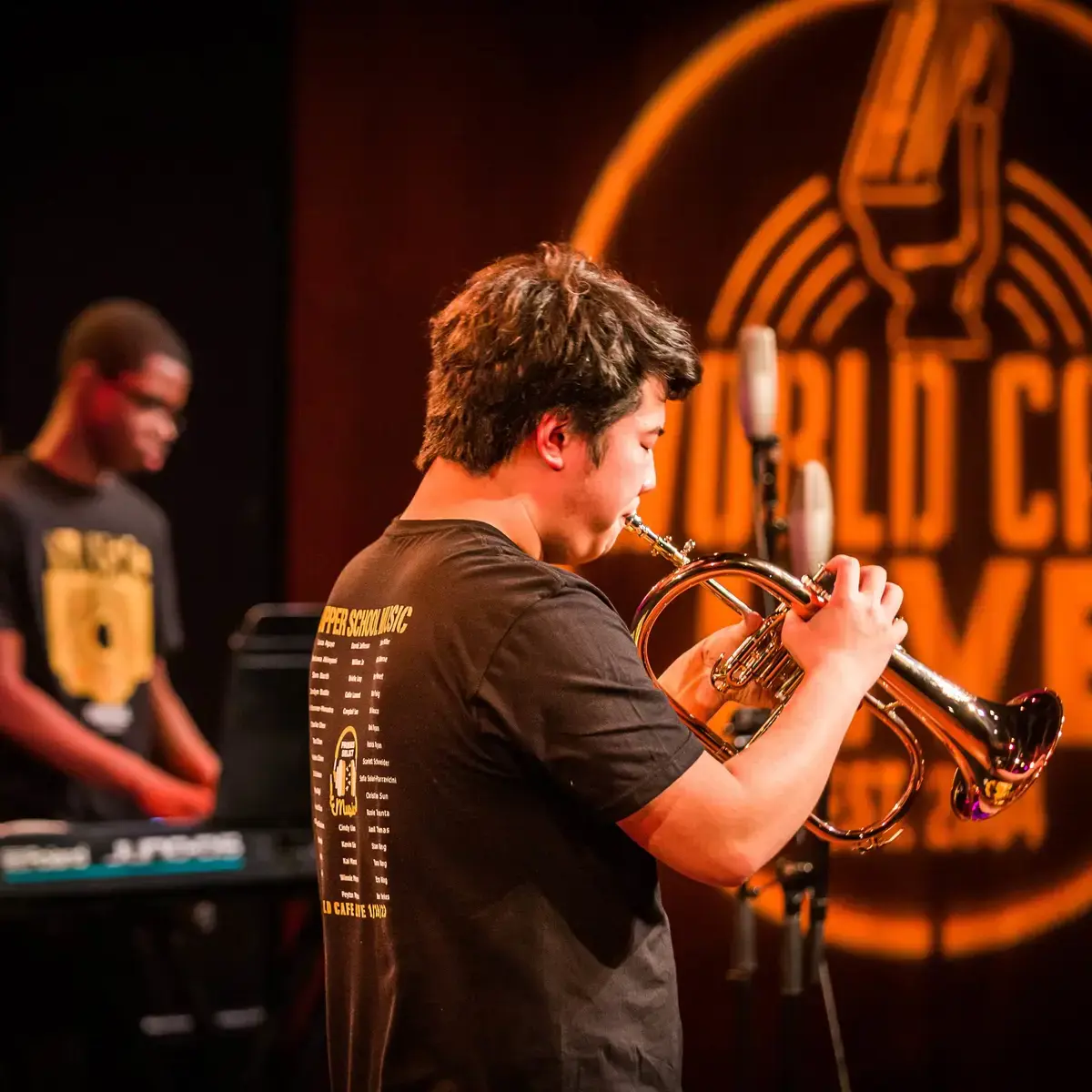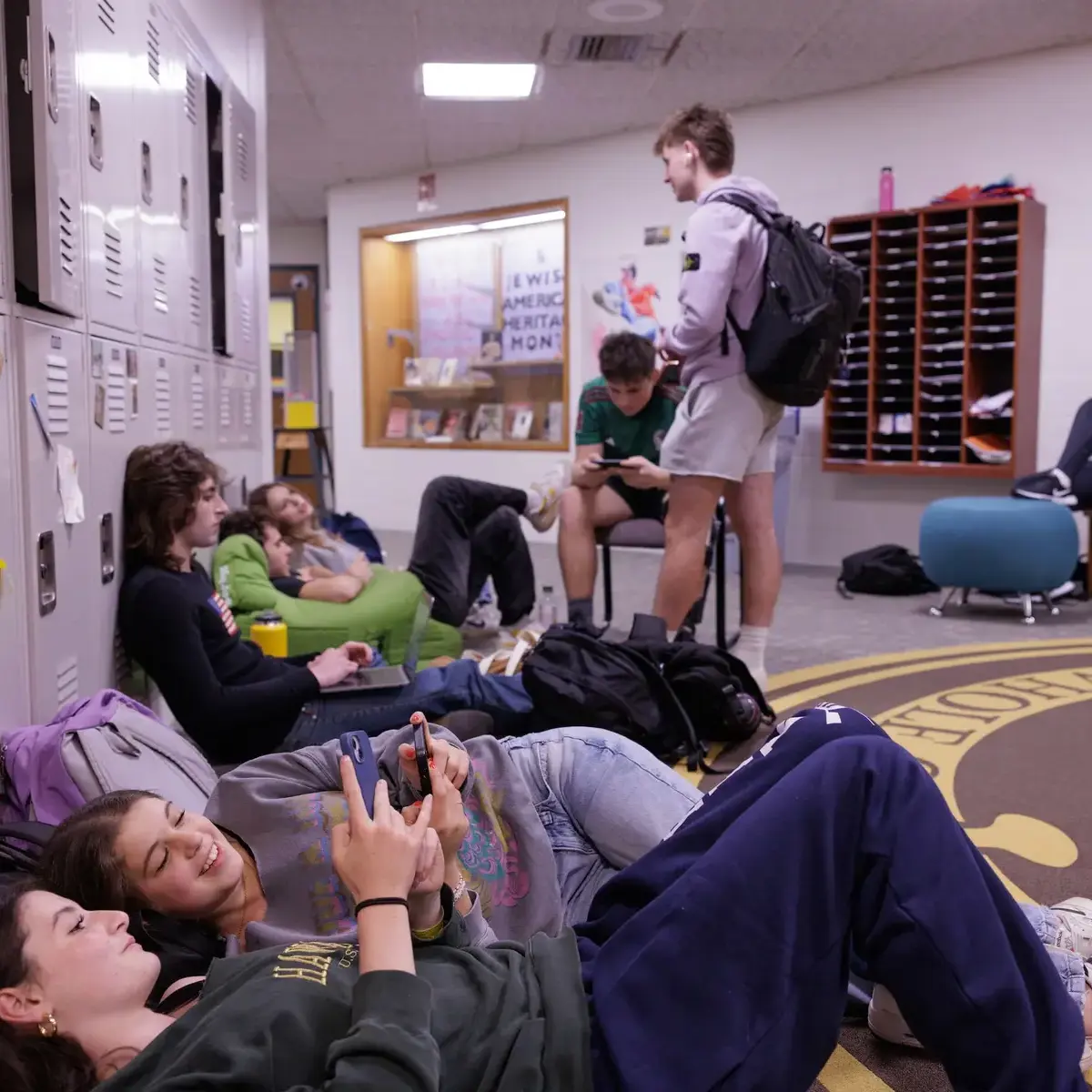In Friends Select’s upper school community, we take pride in seeing our students reach their fullest potential as they apply lifelong lessons from our Quaker educational program.
This is evident within our academic departments, inside our classrooms, throughout our city, in extracurricular activities, and on student paths beyond our school.
Preparing Students for the “Whole of Life”
Our upper school academic program leads our 9th- to 12th-grade students through a college-preparatory curriculum that is guided by our Quaker mission of developing both student intellect and spirit. As we prepare students for the “whole of life,” our teachers encourage creative and critical thinking through a lens of student discovery, reflection, and kindness. With this holistic approach to education, and in line with our belief that learning should be joyful and meaningful, our students graduate with the knowledge, curiosity, and skills to be insightful leaders and responsible stewards in their communities.
Within our departments of English, history, science, mathematics, world languages, the arts, experiential learning, physical education, and health, students experience a challenging yet supportive curriculum. Each student takes our required core classes and concurrently chooses from a variety of electives that reflect students’ passions. Elective classes range from semester offerings, to full-year advanced-level classes, to interdisciplinary options, to student-designed independent studies and explorations. Through communicating, problem-solving, writing, and analyzing, our 9th graders are introduced to fundamental principles and skills, and our 10th through 12th graders learn to further refine and apply those practices in more developed and sophisticated ways. Whatever the discipline, we have an experienced support team to help students who may need further guidance, and we provide additional courses and avenues for students who want to be pushed further in their pursuit of deeper scholarship.

